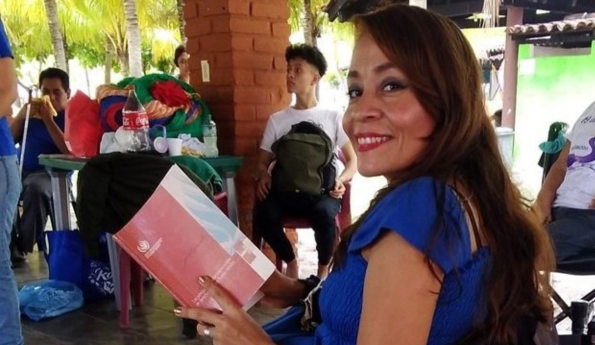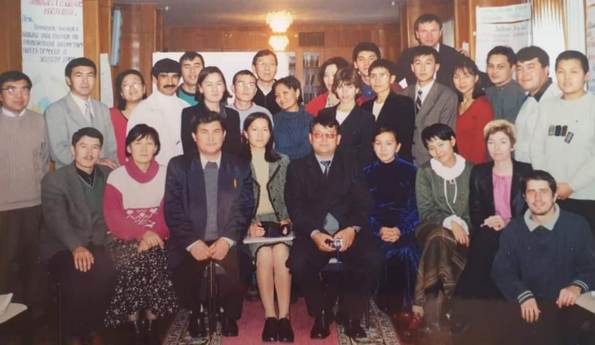This story is part of our series on Counterpart’s Food for Progress program in Guatemala.
Over the course of my week in Guatemala, I met with more than 10 partners in eight different communities spread across the Western Highlands. Each group was generating income through different agricultural activities, but throughout all of the stories shared, one thread remained the same: at the heart of all of the communities where Counterpart International works is our relationship with the Guatemalan Ministry of Agriculture, Livestock and Food (MAGA).
MAGA extension agents are government employees trained in agriculture specialties ranging from livestock to home economics, and are assigned to provide technical assistance to farmers and families in communities throughout the country. In every community, farmers talked about their extension agents time and time again, saying how valuable both their technical expertise and introductions to partners – like Counterpart – has been to their ability to grow, generate income, and provide for their families.
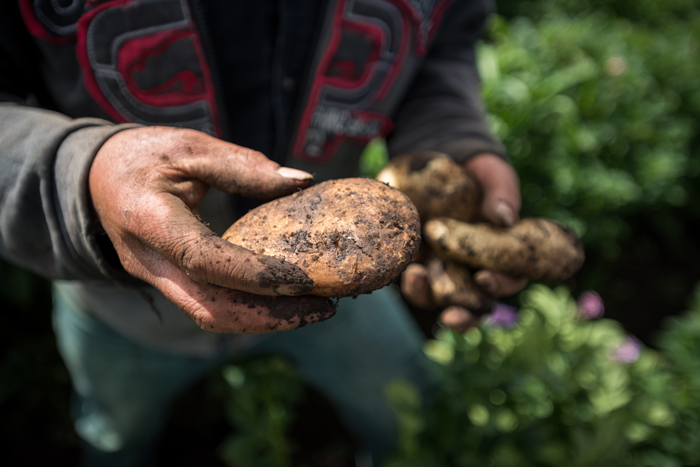
Looking for a way to help breathe new life into the agricultural industry of Guatemala, in 2012, Counterpart was instrumental in revitalizing the MAGA National Rural Extension System, which had been dormant since 1990. Through this partnership, Counterpart and MAGA work hand in hand with other partners like the University of San Carlos and The University of California – Davis to train MAGA extension agents. Additionally, Counterpart’s technicians in the Western Highlands support the extension agents’ work by hosting public workshops focused on drought resistant agriculture techniques, sustainable farming practices, marketing, and more, depending on the specific, personalized needs that each community identifies. Since 2012, more than 300 extension agents have been trained and they in turn, have reached more than 30,000 rural families helping them improve their crop yield and standard of living.
Victor Villalta is the National Rural Extension System Director – as of one month ago. Since starting, he has already has had 15 meetings with the Guatemalan Congress about the future of the Extension Agent program. He is working quickly with Counterpart, the US Department of Agriculture (who funds our Food for Progress program), and other partners to demonstrate the value of well-trained extension agents and their vital importance to the economic development of Guatemala and the Western Highlands in particular.
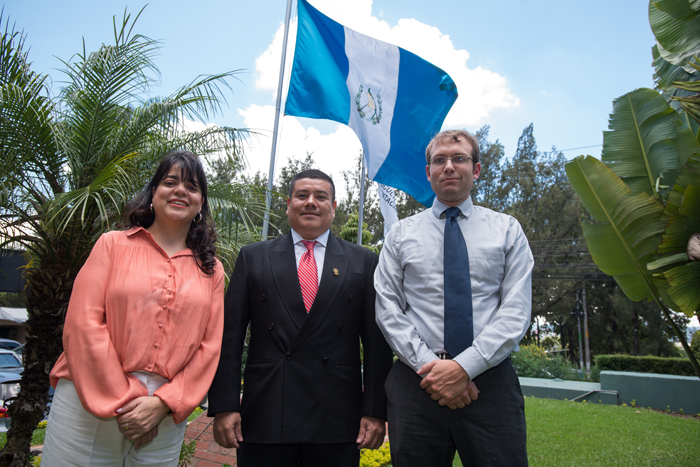
(Left to right) Maria Esther Bucaro, Chief of Party for Counterpart in Guatemala; Victor Villalta, National Rural Extension System Director for MAGA; Mark A. Rosmann, International Program Specialist for USDA.
Historically, extension workers have been viewed as simply government agents who can provide food aid or donations, as opposed to technical assistance. “We have to change the mentality that this is all they can do,” Director Villalta explains. “We want to work with Counterpart to ensure that the extension program goes beyond this. Together, we have the opportunity to change the country and allow and enable farmers to generate their own income and stop the flood of emigration to the United States.”
Despite the important work that the extension workers are doing to improve agricultural practices in Guatemala and increase market access for rural farmers, the Extension program has been plagued with setbacks, including a lack of budget that resulted in abruptly terminating the contracts of all of Guatemala’s extension workers earlier this year. While MAGA scrambled to reinstate contracts and hire new extension workers, many of the communities who had built close relationships with their agents were forced to work alone without access to technical support while the government sorted out the funding issues. One community, however, refused to wait.
Vega Seca, home to a CADER focused on potato production, had worked closely with their Counterpart-trained extension worker for years and had come to rely heavily on his expertise. When the agent’s contract was terminated, the community came together and pooled their own resources to provide housing and pay for his salary at their own expense, rather than lose the expert who had become a trusted confidante and advisor in their community. The extension agent stayed, showing his dedication to and love for that community.
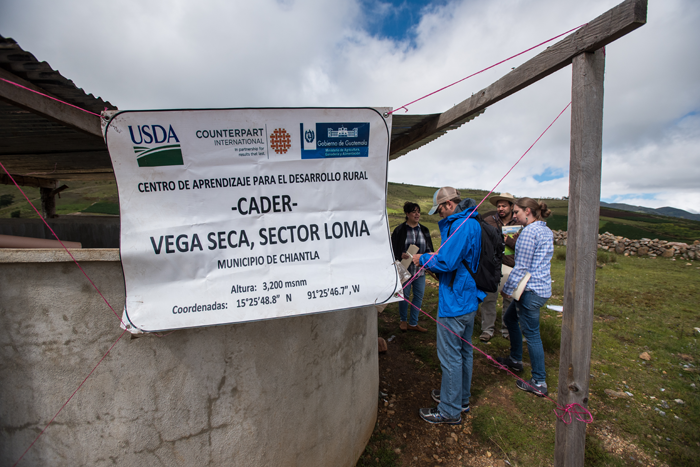
Little by little, Director Villalta is re-hiring the extensionists, and to date has reinstated 100 of those trained by Counterpart. While addressing the urgent need to get extension agents back in the field, he takes a moment to look out into the future.
“In 15 years, I hope Guatemala has a higher quality of life for families, less malnutrition, and lower poverty rates.”
He goes on, smiling, “This job is a privilege. We have the opportunity to insert ourselves in the public lives of citizens and build a more sustainable economy, produce better quality agricultural products, and increase the diversity of diets. We could have a stronger country.” Counterpart is proud to work with MAGA and Director Villalta to make that vision a reality.
To date in Guatemala, Counterpart has provided 226 organizational development trainings to farmers, and 124 farming cooperatives across all levels of production in industries ranging from coffee to vegetables to livestock. Counterpart looks forward to working with these communities, in partnership with USDA, for many years to come. We are committed to helping these organizations increase sustainable agriculture yields that will improve family nutrition and increase family incomes.
With generous support from the United States Department of Agriculture (USDA), Counterpart International is working in more than 35 communities across Guatemala, providing training and capacity building to increase sustainable agricultural techniques in rural communities, increase production, and improve livelihoods of indigenous rural farmers. From August 7th through 13th, Alexandra Frank, Counterpart’s Senior Officer for External Relations, traveled to Guatemala to visit a variety of our Food for Progress program sites, and hear stories from program beneficiaries and partners throughout Guatemala City and the Western Highlands. During the next eight weeks, we will feature stories and photos of our amazing Guatemalan partners on our blog every Tuesday.



